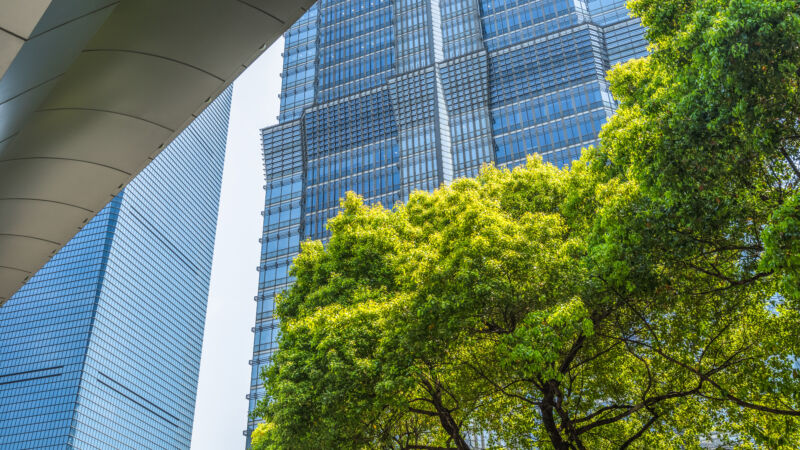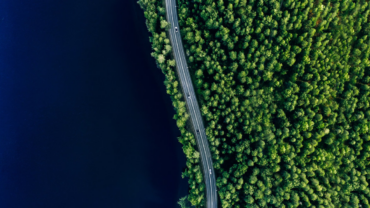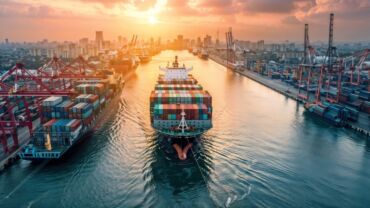Economic concepts of a "steady-state economy" and "degrowth" — in contrast to the traditional growth-centric paradigm — are emerging to address the urgent need for a global economic shift in the face of escalating climate change impacts and resource limitations
Starting in the 1970s, the concept of a steady-state economy was pioneered by ecological economist Herman Daly as a solution to the unsustainable contradiction of endless economic growth on a planet with limited resources.
The essence of this idea is that as economies expand and become more interconnected globally, they must conform to the planet’s ecological limits. A steady-state economy aims for qualitative improvement rather than mere quantitative expansion, promoting sustainability by ensuring that economic activities do not deplete or damage the Earth’s resources and ecosystems. In such a balanced system, progress is achieved not by increasing overall consumption and throughput but by enhancing efficiency, advancing technology, and optimizing the use of resources, all while respecting the planet’s capacity to provide sustainably.
Another decades-old economic term that is gaining traction among some sustainability advocates is degrowth, a concept calls for a conscious and fair decrease in the levels of production and consumption, ensuring social justice and equity. The degrowth movement aims to enhance human well-being and environmental sustainability by intentionally scaling down economic activities to align with the Earth’s ecological boundaries and finite resources.
The idea of degrowth involves cutting down on consumption by becoming more efficient — using fewer resources to produce more — and changing societal behaviors to prioritize sustainability and less materialistic lifestyles. As concern over climate change grows, so does the conversation around degrowth. Critics of the current economic model suggest that if governments, companies, and humans don’t shift our focus from a paradigm of economic expansion that uses financial gain as the sole indicator of progress, we risk triggering severe climate consequences.
Consequences of status quo
If there are no major changes to consumption by humans and the only measure of progress continues to be economic growth, many believe the consequences of the status quo could become dire. Indeed, critics of the status quo point to the recent intensity of extreme weather patterns over the last decade as proof that there is a penalty for emitting greenhouses gases into the atmosphere, which have triggered increases in the planet’s temperature.
The Earth’s temperature has reached the threshold of 1.5-degree Celsius above pre-industrial temperatures while the world economy has grown on average of 2.8% since 1990. As a result, global warming continues to spur a host of environmental consequences, including the elevation of sea levels, the thawing of glaciers, and the diminishing of Arctic Sea ice, alongside a surge in the frequency and intensity of extreme weather phenomena, like tsunamis, tornadoes, and torrential rainstorms.
According to the United Nations, weather emergencies have forced around 21.5 million people to move on average, each year since 2010. The ongoing devastation caused by weather, along with increasing global population, has exacerbated the problems of food shortages and lack of water. This has made it even more difficult for refugees and people displaced within their own countries to consider going back to their original homes.
 For more content on sustainability and other critical issues, check out the ESG Resource Center on the Thomson Reuters Institute blog site.
For more content on sustainability and other critical issues, check out the ESG Resource Center on the Thomson Reuters Institute blog site.
Without dramatic action to mitigate climate change and significantly reduce the risk of climate disasters, 200 million people will be in need of humanitarian assistance annually due to the effects of climate change by the year 2050, according to the latest research. Movement of this amount of people is likely to insert additional volatility in areas that are already somewhat unstable. And as entire families risk their lives in search of safety and security, mass migration leaves them vulnerable to exploitation and radicalization, all of which further undermine stability.
In fact, many world leaders are starting to recognize this correlation. In 2021, U.S. Defense Secretary Lloyd Austin said that the “climate crisis is a profoundly destabilizing force for the world.”
Often, capitalism itself is cited as one of the key factors in the reduction of global poverty. Indeed, according to the World Bank, the proportion of the global population experiencing extreme poverty has decreased significantly, to approximately 9.2% (which equates to around 689 million individuals) in 2017, compared to 36% in 1990. This substantial decrease is often credited, in part, to the adoption of free market capitalism and the resulting economic expansion across the globe.
However, without measures to address the root causes of climate change, progress in extreme poverty reductions could be lost. The World Bank forecasted that without such action, 32 million to 132 million people could be pushed “into extreme poverty by 2030… with these poverty impacts increasing after 2030 until climate policies succeed in reducing global carbon emissions to zero.”
Opponents of ideas like degrowth and steady-state economies raise concerns about how to satisfy the increasing energy and food requirements of a growing global population without economic expansion, while simultaneously addressing pressing global challenges such as climate change and poverty alleviation.
Elements of degrowth already highly valued
Arguably, the global Covid-19 pandemic accelerated and mainstreamed certain elements of degrowth, such as the permanent higher prioritization on holistic human well-being, relationships, and community. For example, the ongoing view that white-collar employees, amid the era of talent shortage in the job market, continue to reject returning to the office five days per week, in part because of their placing a higher priority on their own well-being, family, and community, as well as the costs of commuting.
While the underlying viewpoint of a steady-state economy or degrowth may be in conflict with the traditional definition of progress in Western capitalist economics, in truth, the global economy cannot sustain perpetual growth indefinitely on a planet with finite limits.
Eventually, Earth itself may force humanity to adopt a steady-state or degrowth economy to protect the planet’s delicate balance and ensure long-term sustainability. Earth is a self-sustaining system in which all components and processes are interconnected and interdependent. This means that any changes or disturbances to one system can have far-reaching effects on the entire planet, making it crucial for changes in status quo — and therefore, the prevailing economic paradigm — in order to maintain a balance of energy, matter, and life on Earth.







